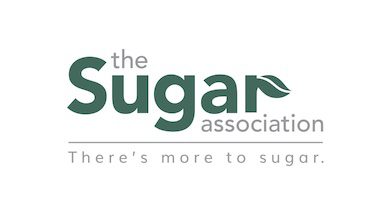
May 2, 2017
Sugar (sucrose) is a molecule that occurs naturally in all sugar beets and sugar cane. This sucrose molecule is identical, whether it comes from a sugar beet or a stalk of sugar cane and whether or not biotechnology was involved. A genetically engineered sugar beet has enhanced characteristics for weed, insect and disease control, along with benefits to the environment. And, all genetic material is removed from the sugar during the beet sugar extraction process well before the sugar gets to the food supply. This includes any genetic material introduced into the plant during genetic engineering (plant DNA and proteins). Thus, regardless of whether the plant from which the sugar (sucrose) is derived is biotech or otherwise, the resulting sugar molecule is identical and in all cases, the sugar we eat is the result of the extraction of naturally occurring sucrose from the plant.
Modern plant breeding technologies, including biotechnology, enable farmers to produce greater quantities of safe food with much less impact on the environment. The benefits of genetic engineering are numerous and there is no credible scientific evidence that genetically modified sugar beets, when compared to sugar beets produced using traditional plant breeding methods, present any risk to the environment or to food and feed safety. In fact, the European Commission examined a decade of publicly funded research and found no scientific evidence that any genetically engineered crop presents a higher food or feed safety risk.
In 1992, as biotech crops entered into the marketplace, the U.S. Food and Drug Administration issued a policy statement concluding that genetic engineering is a “continuum” of traditional plant breeding techniques, and a more “precise” methodology to “increase the potential to produce safe, better-characterized and more predictable foods.” In 2014 and 2015, FDA officials reaffirmed the 1992 policy, testifying before the U.S. House of Representatives Subcommittee on Health and the Senate Committee on Agriculture, Nutrition and Forestry that “we are confident that the GE (genetically engineered) foods in the U.S. marketplace today are as safe as their conventional counterparts.” The safety of genetically engineered crops has been extensively studied for decades. An exhaustive review of over 1,000 peer-reviewed scientific studies conducted over a decade, shows no evidence of harm to human health due to the consumption of food derived from biotech crops.
Virtually all sugar beet growers in the U.S. and Canada grow sugar beets that have been genetically enhanced using biotechnology in order to achieve better weed control and a healthier sugar beet, making for more efficient and resilient growing conditions. But biotech crops, like sugar beets, also have significant documented environmental benefits including reductions in the use of pesticides, the use of less toxic pesticides, reductions in greenhouse gases due to less fuel use and reduced tillage, reduced water use, and better soil conservation.

October 15, 2025
WASHINGTON D.C. | OCTOBER 15, 2025 – The Sugar Association is marking National Real Sugar Day today by celebrating the gold standard of sweetness – real sugar! This year’s celebration highlights real sugar’s unique story and its deep roots, from farms to family favorites. Real sugar’s roots go back thousands of years, as one of […]

January 14, 2025
January 14, 2025 (Washington, D.C.) – The following reaction statement is attributable to Sugar Association President and CEO Courtney Gaine, PhD, RD: “The Sugar Association supports transparency, but this draft label offers only the illusion of transparency – it entirely leaves out total calories and the use of industrial additives like artificial sweeteners. In fact, […]

December 19, 2024
December 19, 2024 (Washington, D.C.) – The following reaction statement is attributable to Sugar Association President and CEO Courtney Gaine, PhD, RD: “The Sugar Association supports the Dietary Guidelines recommendation to limit added sugars to 10% of total calories, but the new “healthy” definition goes well beyond that recommendation and arbitrarily excludes many foods containing […]
© 2025 The Sugar Association, Inc. All rights reserved.
Get Social with #MoreToSugar